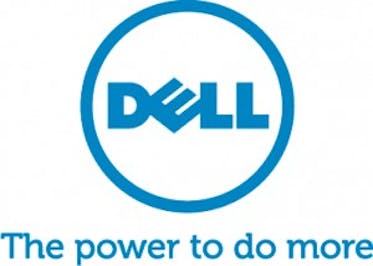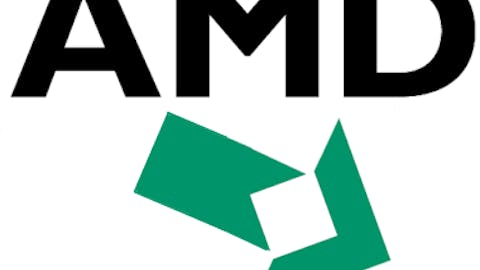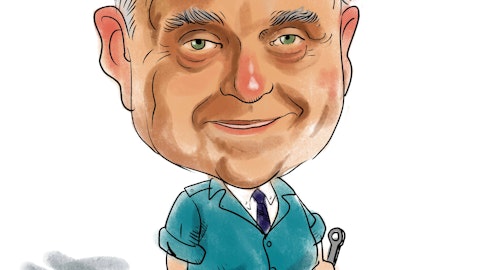
The bidding war seems to never end
The bidding war started when Michael Dell and the private equity firm Silver Lake Partners offered to buy out the whole company at $13.65 per share, or $24.4 billion. Right after that, Southeastern Asset Management, the second biggest shareholder at that time, argued that Dell Inc. (NASDAQ:DELL) was worth around $23.72 per share with the sum-of-all-parts valuation technique. The $23.72 per share valuation includes $11.72 per share for Dell’s businesses (DFS, Server, Support and Deployment, PC Business and Software and Peripherals), $3.64 per share in cash, and the acquisitions since 2008 of $7.58 per share. Carl Icahn also thought that Dell Inc. (NASDAQ:DELL) should be worth $22.81 per share, with a $9 special dividend and $13.81 “stub” value using discounted free cash flow valuation method).
Afterwards, Carl Icahn and Southeastern Asset Management joined forces to make the “leveraged recapitalization” proposal with the option to either receive $12 per share in cash or $12 in additional shares valued at around $1.65 per share. However, that proposal had been rejected by Dell’s board. In the recent investor presentation, Dell Inc. (NASDAQ:DELL) summarized that the net funding of $17.3 billion of Icahn/Southeastern offer comprises $8.8 billion in Dell cash, $3.3 billion in net financial receivables proceeds and $5.2 billion in bridge loans. However, the financial receivables and bridge loan funding were not committed.
Dell Inc. (NASDAQ:DELL) thought that because of high leverage, it would significantly increase Dell’s risk profile with a weaker financial position to transform the business. After the deal, still two-thirds of Dell’s revenue was coming from the declining PC business. Looking forward, the company said that the new Dell Inc. (NASDAQ:DELL) would focus on Enterprise Solutions Group (servers, peripherals, networking and storage), and Services. By Q1 FY 2014, 88% of Dell’s operating income would come from Services while the remaining 32% would come from the Enterprise Solutions Group.
To respond, after acquiring 72 million shares from Southeastern, Icahn pushed the company to buy back 1.1 billion shares at around $14 per share, with the total investment of $16 billion. As Dell has around 1.75 billion total shares outstanding, this buyback could be considered huge, retiring around 63% of the company’s total share count. The buyback would be financed by $7.5 billion in Dell cash, $2.9 billion in Dell Inc. (NASDAQ:DELL) receivables and $5.2 billion in debt. At the current trading price of $13.40 per share, Dell is valued at 5.24 times its trailing EBITDA.
How about Hewlett-Packard and Lenovo?
Another big global PC maker, Hewlett-Packard Company (NYSE:HPQ), has a bit lower EBITDA multiple. It is trading at $25.40 per share, with a total market cap of $49 billion. The market values Hewlett-Packard at 4.37 times its trailing EBITDA. Hewlett-Packard Company (NYSE:HPQ) previously “bought” its R&D, pouring money into acquisitions rather than developing internal R&D. In R&D, the percentage of revenue has been declining rapidly, from more than 11% in 1987 to only 2% in 2012. Because of the acquisition spree several years ago, the company had to write down as much as $8.8 billion on an $11 billion purchase of Autonomy at the end of 2012. What investors might focus on is its substantial ongoing business restructuring under Meg Whitman’s leadership. However, Hewlett-Packard still booked an extremely high level of goodwill and intangibles on the balance sheet. As of Apr 2013, the goodwill and intangible were more than $35 billion, much higher than its equity of only $23.5 billion. The high level of goodwill and intangibles makes the company quite vulnerable to a sudden write-off in the future, which would slash the company’s share price on the market.
If investors still care about PC makers, they should look at Lenovo Group Limited (PINK:LNVGY). Lenovo seems to have a much stronger balance sheet than Hewlett-Packard Company (NYSE:HPQ). As of March 2013, it had nearly $2.7 billion in equity, nearly $3.7 billion in cash and around $600 million in both long and short-term debt. The goodwill and intangible assets came in at only more than $3.3 billion. Lenovo has surpassed Dell Inc. (NASDAQ:DELL) to become the second largest global PC maker after Hewlett-Packard. In the first quarter 2013, while the total industry dropped by as much as 14%, Lenovo Group Limited (PINK:LNVGY) was the best performing player, experiencing nearly no decline. Interestingly, it also opened its PC production in North Carolina. Despite the higher production cost in the U.S. compared to China, Lenovo sees that the manufacturing facility in the U.S. would enable Lenovo Group Limited (PINK:LNVGY) to expand its footprint in the U.S. market. Its Chairman and CEO set the goal for Lenovo to become the leader in the global PC industry within this fiscal year.
My Foolish take
Three global leading PC makers could be investment opportunities for different reasons. Dell Inc. (NASDAQ:DELL) could be considered the speculative play on the bidding war. Hewlett-Packard Company (NYSE:HPQ) is the play for its aggressive ongoing business restructuring and Lenovo Group Limited (PINK:LNVGY) is a good stock for investors because of its strong performance in the global PC market and its U.S. expansion.
The massive wave of mobile computing has done much to unseat the major players in the PC market, including venerable technology names like Hewlett-Packard Company (NYSE:HPQ). However, HP’s rapidly shifting its strategy under the new leadership of CEO Meg Whitman. But does this make HP one of the least-appreciated turnaround stories on the market, or is this a minor blip on its road to irrelevance?
The article The Speculative PC Play on the Bidding War originally appeared on Fool.com.
Anh HOANG has no position in any stocks mentioned. The Motley Fool has no position in any of the stocks mentioned. Anh is a member of The Motley Fool Blog Network — entries represent the personal opinion of the blogger and are not formally edited.
Copyright © 1995 – 2013 The Motley Fool, LLC. All rights reserved. The Motley Fool has a disclosure policy.





